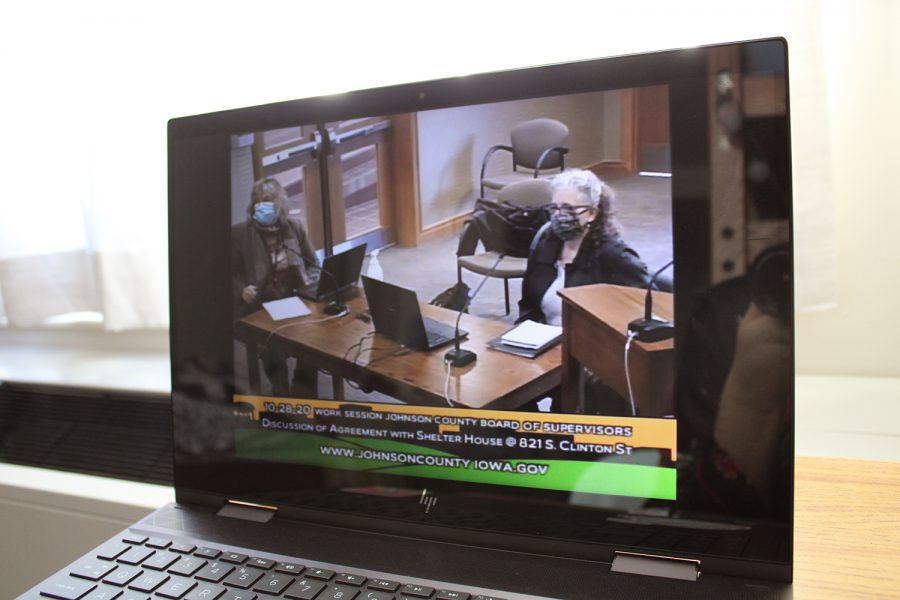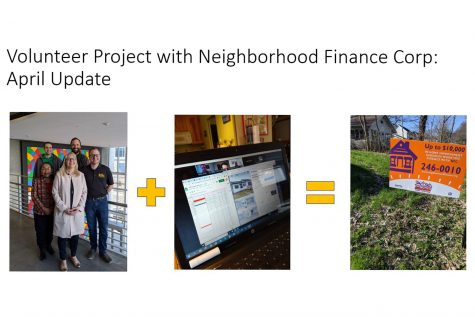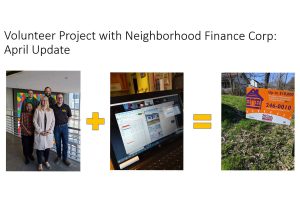Board of Supervisors unanimously votes to allow Shelter House to house homeless people in local hotels
The non-congregate sheltering alternatives will allow Shelter House to provide socially distant spaces with a budget of $40,000.
Johnson County Attorney Janet Lyness and Executive Director of Shelter House Crissy Canganelli at the Johnson County Board of Supervisors Work Session on October 28, 2020. Lyness and Canganelli are seen discussing an agreement on shelter houses for the low-barrier winter shelters at two different locations in Iowa City.
December 10, 2020
The Johnson County Board of Supervisors unanimously voted to pass an agreement with Shelter House to provide “non-congregate sheltering alternatives” for homeless people in Johnson County.
The agreement provides Shelter House with a budget of $40,000, which they can use to house their clients in local hotels and motels in order to prevent overcrowding in their main shelters throughout the pandemic.
The duration of the agreement until April 30, 2021, and any liability costs beyond $3,000 will be the sole responsibility of Shelter House. Shelter House is a nonprofit organization in Iowa that operates emergency shelters, homes, and mental-health programs around the state.
Shelter House has operated winter homeless shelters since 2015, but the pandemic has presented unique challenges for their operation. They have previously entered agreements with the county to shelter their clients at the old CarQuest building on S. Clinton St, as well as their own main shelters.
The funds for the non-congregate shelter alternatives come out of the Federal Emergency Management Agency’s (FEMA) Public Assistance Program, and must be distributed without regard to national origin, sex, religion, age, disability, Limited English Proficiency (LEP), or economic status.




















